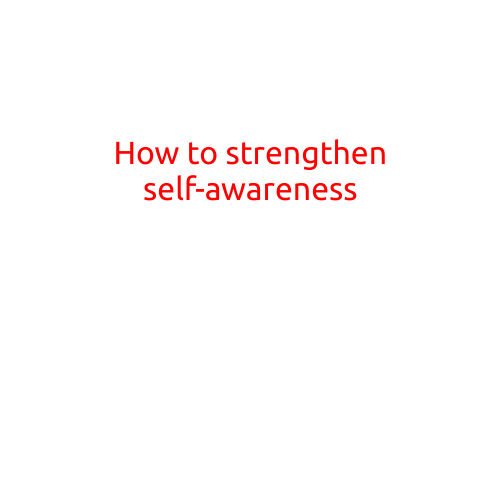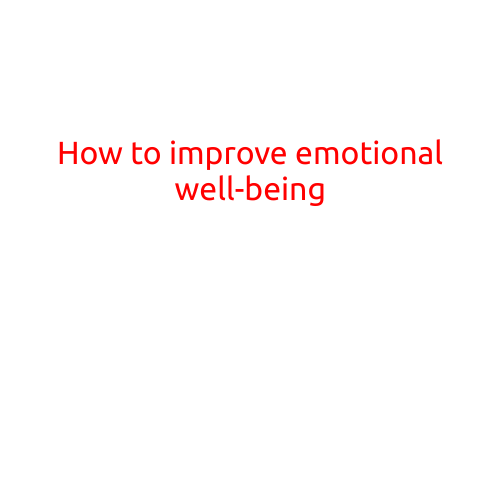
How to Strengthen Self-Awareness
Self-awareness is the ability to understand and recognize one’s emotions, thoughts, and values. It is a crucial aspect of personal growth and development, as it enables individuals to make informed decisions, build strong relationships, and achieve their goals. However, many people struggle with self-awareness, often due to a lack of introspection and mindfulness. In this article, we will explore the importance of self-awareness and provide tips on how to strengthen it.
Why is Self-Awareness Important?
Self-awareness is essential for many reasons:
- Improved decision-making: Without self-awareness, individuals may make impulsive decisions that align with their short-term desires rather than their long-term goals.
- Better relationships: Self-awareness helps individuals recognize their emotions and respond appropriately, leading to stronger and more meaningful relationships.
- Increased emotional intelligence: Self-awareness is a key component of emotional intelligence, which is critical for managing stress, empathy, and effective communication.
- Personal growth: Self-awareness allows individuals to identify areas for improvement and work on themselves to become better versions of themselves.
How to Strengthen Self-Awareness
Strengthening self-awareness requires regular practice and patience. Here are some tips to help you improve your self-awareness:
- Mindfulness meditation: Regular mindfulness meditation can help you become more present and aware of your thoughts, emotions, and physical sensations. Start with short sessions (5-10 minutes) and gradually increase the duration.
- Log your thoughts and emotions: Carry a small notebook or use a mobile app to record your thoughts and emotions throughout the day. Reflecting on your patterns and triggers can help you gain valuable insights.
- Seek feedback from others: Ask trusted friends, family, or colleagues for their honest feedback about your strengths, weaknesses, and areas for improvement. Listen carefully to their responses and use the feedback to self-reflect.
- Practice self-reflection: Set aside time each day to reflect on your experiences, thoughts, and emotions. Ask yourself questions like “What did I learn today?” “What can I improve on?” or “What am I grateful for?”
- Embrace imperfection: Recognize that it’s okay to make mistakes and that imperfection is a natural part of growth. Don’t be too hard on yourself when things don’t go as planned.
- Develop a growth mindset: View challenges as opportunities for growth and development, rather than threats to your ego.
- Learn to say no: Prioritize your own needs and set boundaries to avoid burnout and maintain emotional well-being.
- Engage in journaling: Writing down your thoughts and feelings can help you process and release emotions, gain clarity, and develop a deeper understanding of yourself.
- Take calculated risks: Step out of your comfort zone and take calculated risks to challenge yourself and build confidence in your abilities.
- Seek therapy or coaching: Working with a therapist or coach can provide an opportunity to explore your thoughts, feelings, and behaviors with a trained professional, helping you gain a deeper understanding of yourself.
Conclusion
Strengthening self-awareness takes time, effort, and practice. By incorporating these tips into your daily routine, you can develop a greater understanding of yourself and improve your relationships, decision-making, and overall well-being. Remember, self-awareness is a lifelong journey, and it’s essential to be patient and gentle with yourself as you work to develop greater self-awareness.





